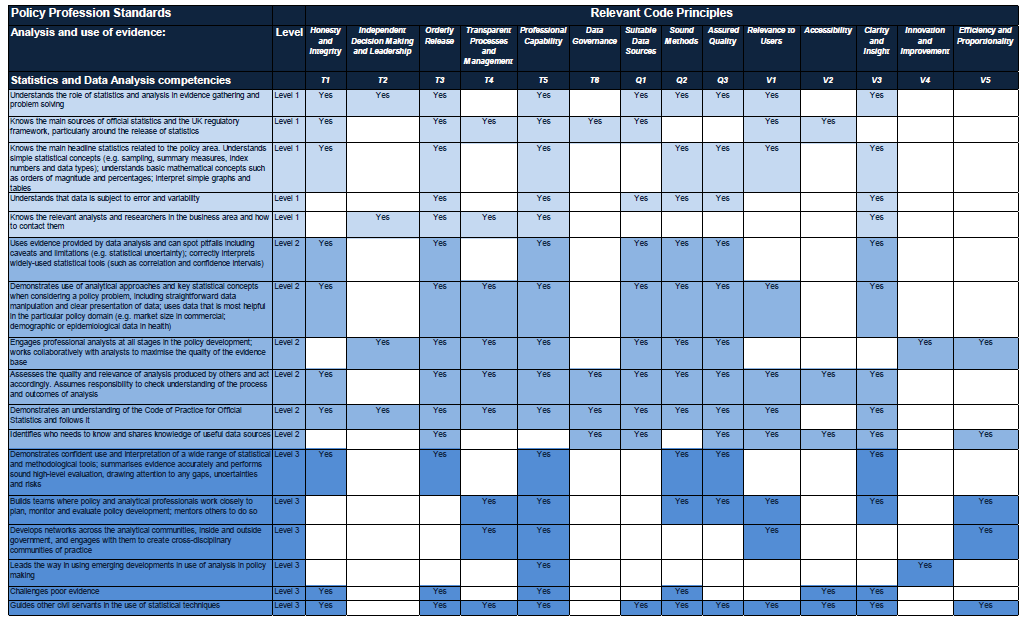How to get on and influence people or what you need to know if you want to be part of important policy decisions.
Penny Babb, Head of Policy and Standards in the Office for Statistics Regulation, describes how thinking about Trustworthiness, Quality and Value can help policy professionals in their careers.
Policy professionals are at the heart of designing and delivering the work of government. Your judgement about evidence is crucial in developing sound policies and understanding their implications and impact. To be able to effectively assess evidence and advise on solutions, your decisions need to be based on more than just instinct – a gut reaction to what sounds like a great idea can lead to millions of pounds of public money being wasted. But get it right and you can transform the lives of millions of people in the UK.
How do you know what evidence you can trust, or decide if the figures are reliable or are the ones you need?
Keep it simple and consider three things: Trustworthiness, Quality and Value.
Trustworthy
Ask who produced the figures – how do you know you can trust them in the way that they produce their figures and use data?
Quality
What is the quality of the data and how robust are the methods? How sure can you be about the evidence?
Value
Do the figures measure what you are interested in? Can you make sense of the patterns and trends?
Trustworthiness, Quality and Value are the fundamental pillars of the Code of Practice for Statistics. The Code sets out what you as users can expect from the producers of official statistics, and the standards they should work to, to ensure that you can have confidence in their statistics.
The pillars are useful for other data, statistics and analysis, going beyond official statistics. For example, they are being applied by analysts in Department for Work and Pensions and by the Greater London Authority.
You can also apply the pillars in your own work. Think about when you produce ministerial advice, and ask yourself how the Minister can have confidence in your briefing:
- How have you demonstrated your trustworthiness in the way that you have organised and managed the information?
- How reliable is your evidence and how certain are you about your conclusions?
- How have you provided value in your advice?
The Policy Profession Standards includes competencies related to statistics and data analysis under Evidence – Analysis and use of evidence.
Applying the Code pillars can help you succeed as a policy professional by developing and demonstrating your analytical skills and so providing impartial, well-considered advice based on sound evidence.
The Office for Statistics Regulation produced the Code of Practice for Statistics. We have mapped the principles in the Code to the competencies in the Policy Profession Standards for each of the three professional levels. Use this matrix to see which parts of the Code can help you develop your skills in for statistics and data analysis at each competency level.
Select the image below to download a PDF version:
The Good Practice Team (GPT) in the Government Statistical Service has published a booklet with ten things you need to know about statistics, aimed at policy professionals across central government. It introduces some key ideas and concepts to help you to ask the right questions about data and statistics.

